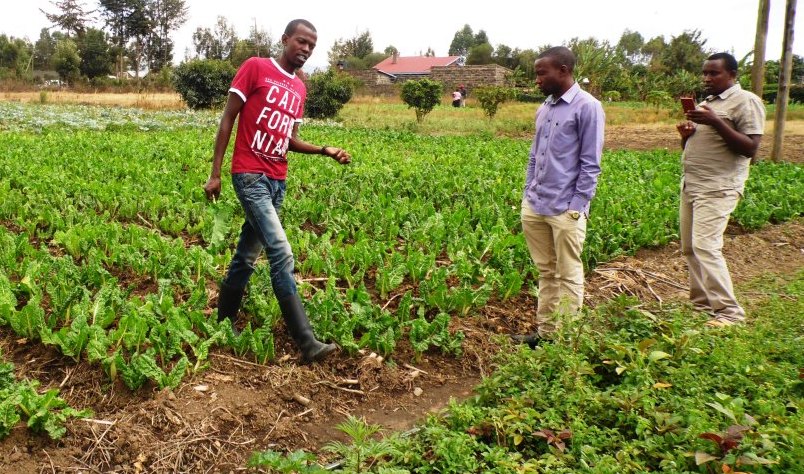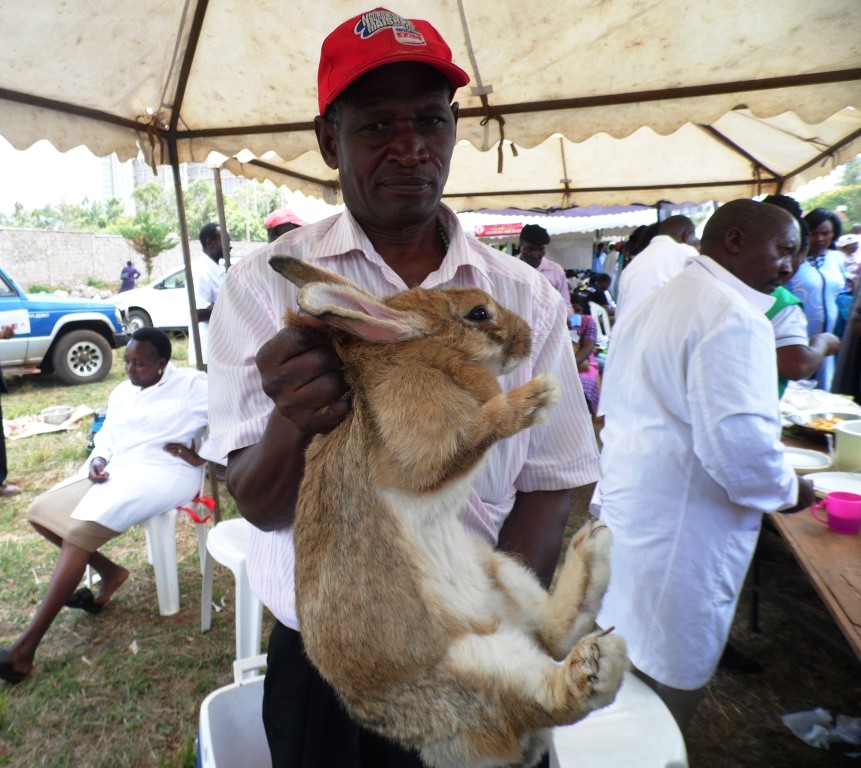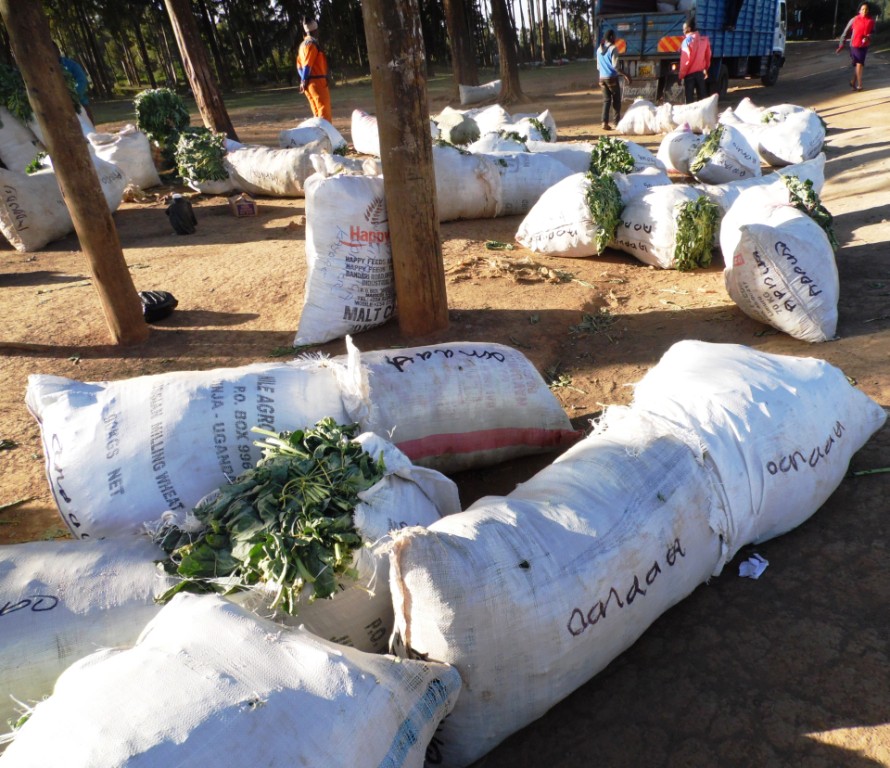
Kevin Maini, Paul Ayieko and Maina Muchai (From left to right) inspecting spinaches in part of the eight-acre piece of land in Lanet, Nakuru, on February 17, 2017. The trio is helping its registered farmers in production and marketing harvests. Photo by Laban Robert.
Three innovative youths have come up with an integrated agribusiness solution of financing and supporting registered farmers through the production chain up to the market.
Farmpro founders Paul Ayieko, Maina Muchai and Kevin Maingi, have partnered with banks, agro-input companies and learning institutions to support farmers in producing quality goods that can fetch high prices in the target markets.
“The vision of Farmpro is to make the farmer the highest earner in the distribution chain, not the middleman. Farmers get the support from financial partners in purchasing quality inputs that give the desired output that will recover the investment and profits for the next season,” Maingi said.
The 150 farmers under Farmpro in Nakuru County are financed by Bank of Africa and Equity Bank based on a detailed analysis of their creditworthiness besides the expected returns from the agro-venture.
In preventing reliance on rain, a farmer can be financed to install drip lines or the purchase of water pump for irrigation.
In the case of animal production, farmers are supported in the installation of structures such as zero grazing units and biogas digesters. The slur from the digester is also piped into the drip-lines for vegetable production.
“Organic farming is an emerging market that is well paying. We need to progressively advance towards it to reap its benefits. Apart from the drip lines ensuring consistence in production for this market, the animal manure is also cutting fertiliser costs,” Maingi said.
The main focus crops include kales, spinaches, capsicums, tomatoes, carrots, among other horticultural produce. Milk is another additional venture that supports the crop farming sector.
All financial help comes in form of inputs such as fertilisers, seeds, machinery, pesticides, among others.
In reducing uncertainty in the production chain, Farmpro has also partnered with UAP Insurance in cushioning the agribusiness against disasters.
Farmers are supported in acquiring quality seeds, which are germinated by Syngenta. The agronomists from the agro-firm and Egerton University offer technical support to the farmers in the production journey.
In boosting the germination percentage and the quality, Syngenta germinates the seedlings for the farmers to only transplant.
In case the farmer still needs agro-chemicals, Syngenta, with the other partners extend the help for a later deduction.
“Agrochemical support includes partial bearing of the costs and training on the application ratios as well as best practices in the process for desired results,” Maingi said.
Massey Ferguson- machinery providers-, and the County Government of Nakuru are other partners.
This being the second year of the agribusiness model, Farmpro has been collecting more than 4,000 litres of milk through its aggregation centres, which are also being crop produce collection points.
After delivery of the produce to Farmpro, the farmer is paid immediately or latest within a week after the bank has deducted its loan.
READ ALSO: New Farmpro fodder doubles milk
READ ALSO: Organic fertiliser doubles onions, helps farmer penetrate new market
READ ALSO: Online marketplace offers farmers and buyers better prices
Markets like the once a week one in Kileleshwa, Nairobi, pay well for organic products. A kilo of organic tomatoes fetches Sh200. This is the market Farmpro is targeting after a three-year journey with the registered farmers.
Current markets include supermarkets, schools, hotels and home deliveries within Nakuru town. The three are also growing cabbage, kales, spinach, carrots, fodder crops and rearing seven cows on eight acres in Lanet.
The three are delivering at least 4,000 litres of milk per day to the market after aggregation from the growing list of farmers.
The milk production under this programme is similar and consistent in quantity because of the fodder, which the trio also makes in collaboration with Egerton University. The price per litre is also consistent.
Ayieko said the problem with marketing farm produce leads to losses in selling to the brokers besides ill practices in production.
“Farmpro is presenting a support package of farmers from production up to the market. The three of us are passionate about it and we are confident all the partners have a something to gain at the end of the production chain,” he said.
Ayieko, Muchai and Maingi are university graduates in economics, information technology and mathematics respectively. They are between 28 and 33 years.


















